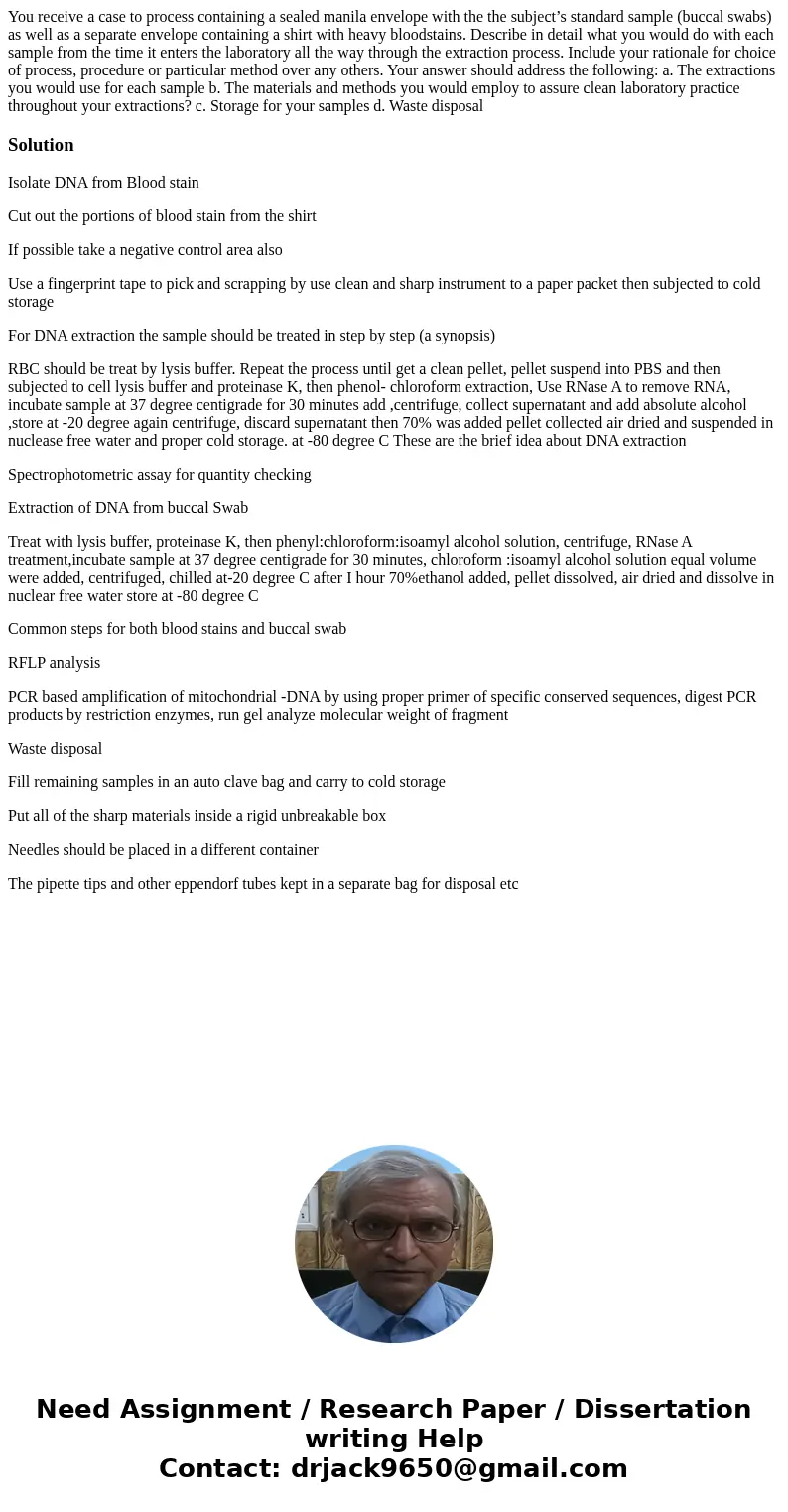You receive a case to process containing a sealed manila env
You receive a case to process containing a sealed manila envelope with the the subject’s standard sample (buccal swabs) as well as a separate envelope containing a shirt with heavy bloodstains. Describe in detail what you would do with each sample from the time it enters the laboratory all the way through the extraction process. Include your rationale for choice of process, procedure or particular method over any others. Your answer should address the following: a. The extractions you would use for each sample b. The materials and methods you would employ to assure clean laboratory practice throughout your extractions? c. Storage for your samples d. Waste disposal
Solution
Isolate DNA from Blood stain
Cut out the portions of blood stain from the shirt
If possible take a negative control area also
Use a fingerprint tape to pick and scrapping by use clean and sharp instrument to a paper packet then subjected to cold storage
For DNA extraction the sample should be treated in step by step (a synopsis)
RBC should be treat by lysis buffer. Repeat the process until get a clean pellet, pellet suspend into PBS and then subjected to cell lysis buffer and proteinase K, then phenol- chloroform extraction, Use RNase A to remove RNA, incubate sample at 37 degree centigrade for 30 minutes add ,centrifuge, collect supernatant and add absolute alcohol ,store at -20 degree again centrifuge, discard supernatant then 70% was added pellet collected air dried and suspended in nuclease free water and proper cold storage. at -80 degree C These are the brief idea about DNA extraction
Spectrophotometric assay for quantity checking
Extraction of DNA from buccal Swab
Treat with lysis buffer, proteinase K, then phenyl:chloroform:isoamyl alcohol solution, centrifuge, RNase A treatment,incubate sample at 37 degree centigrade for 30 minutes, chloroform :isoamyl alcohol solution equal volume were added, centrifuged, chilled at-20 degree C after I hour 70%ethanol added, pellet dissolved, air dried and dissolve in nuclear free water store at -80 degree C
Common steps for both blood stains and buccal swab
RFLP analysis
PCR based amplification of mitochondrial -DNA by using proper primer of specific conserved sequences, digest PCR products by restriction enzymes, run gel analyze molecular weight of fragment
Waste disposal
Fill remaining samples in an auto clave bag and carry to cold storage
Put all of the sharp materials inside a rigid unbreakable box
Needles should be placed in a different container
The pipette tips and other eppendorf tubes kept in a separate bag for disposal etc

 Homework Sourse
Homework Sourse